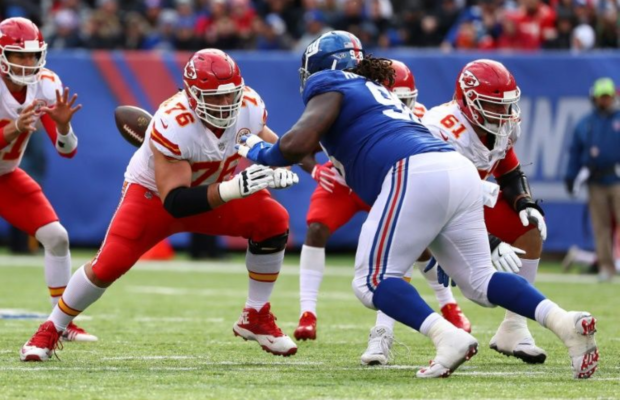Canadian first medical doctor to play in Super Bowl

Canadian offensive lineman Laurent Duvernay-Tardif will make history Sunday night in Miami at Super Bowl LIV when his Kansas City Chiefs face the San Francisco 49ers.
He will be the first medical doctor to play in football’s biggest game.
Duvernay-Tardif, a guard for the Chiefs, completed his doctor of medicine degree in 2018 at Montreal’s McGill University — studying in the offseason as he shined in the NFL the rest of the calendar year.
“I think I want people to see me as one of the best student-athletes in the world,” Duvernay-Tardif, 28, told CNN. “Of course you want to be the best football player. You want to be the best doctor. But to be able to combine both at the highest level … I think that’s my biggest accomplishment.”
Not only is he the first NFL player who’s also a practicing doctor, but on Sunday — when the Chiefs take on the San Francisco 49ers in Miami — he’ll also become the first medical doctor to play in the Super Bowl.
“When I stepped on that stage at McGill University and got my MD … it was probably the best moment of my life — after the one I’m going to live [on Sunday],” said Duvernay-Tardif.
Born in Montreal, the 6-foot-5, 321-pound Duvernay-Tardif speaks French and English, and he was drafted into the NFL in 2014 during his third year of medical school.
With the blessing of Chiefs head coach Andy Reid, the athlete finished his classes and clinicals while juggling his professional football duties.
“You look at the stats, and how long is an average career and all that stuff, with studying medicine I didn’t know what was going to happen, but everything turned out great,” Duvernay-Tardif told CNN. “I think Coach Reid is a big part of that too. He understood what I was trying to do with my study. He gave me the chance to balance both.”
He added:
“If it was not for him I would have [only] got my MD and I would not be here this week for sure.”
Ironically, Reid’s mother also attended McGill, which was no doubt a factor in the head coach’s unflagging support for Duvernay-Tardif.
“I don’t feel like I would have been able to combine both if it wasn’t for him,” Duvernay-Tardif said. “I had to report late every off-season for four years and it was never an issue for him. When I graduated, I flew back to Kansas City right after that last exam. And when I got back into the locker room, coach was there and just said ‘Good job, Doc’. Him saying that meant the world to me.”
Sharing a graduation photo on Instagram in July 2018, Duvernay-Tardif acknowledged the support system he gets both on the field and in the classroom.
“Because support from the people you love makes all the difference!” he captioned the post.
Duvernay-Tardif, who has an interest in emergency health care, told CNN that finishing medical school while still dedicating himself to football was “a grind” with “a lot of sacrifice,” however, “at the end of the day it was worth it.”